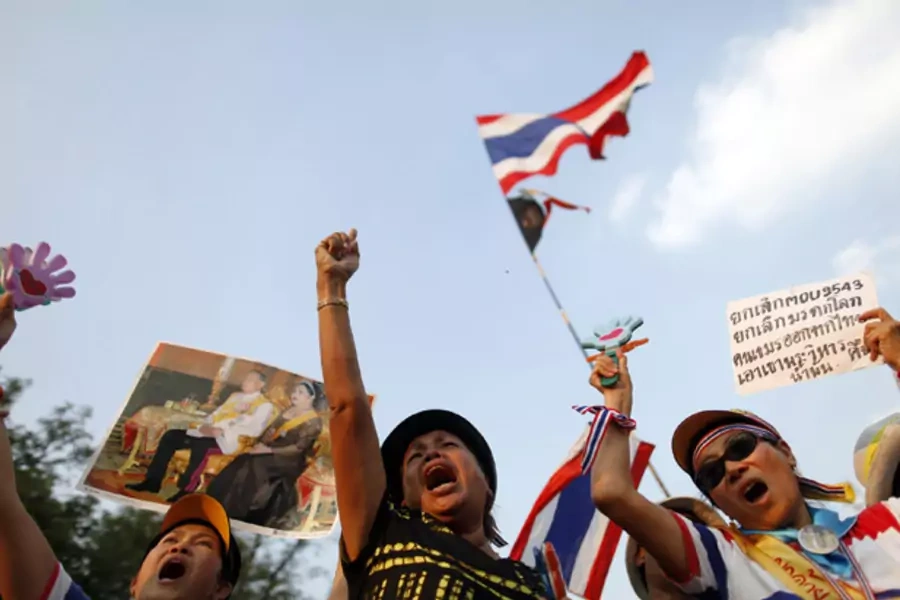When the Middle Class Revolts

More on:
Over on Bangkok Pundit, a translation of an op-ed recently published in the Thai publication Matichon offers some revealing quotes from Senator Somjate Boonthanom, the former general who helped lead the 2006 coup that toppled the government of Thaksin Shinawatra. “The elected ones like to refer to the election process as being democracy,” explained Somajate, “From elections, the people choose, but still corruption. Therefore, it is not proof that coming from elections is the best. Democracy that steals from the nation, I view it as worse than a military dictatorship.”
Of course, such statements are of little surprise from an appointed Senator whose power, as Bangkok Pundit notes, was not derived from the ballot box, but from a coup against an elected government. But General Somjate is far from alone in his sentiments.Throughout the world, middle classes—once seen as the linchpin to successful democratization— are growing increasingly resentful of the institutions of democracy, institutions which have lead in many countries to the legitimate election of officials who these middle classes perceive as corrupt, authoritarian and the source of policies that run counter to their own interests. Instead of taking their plight to the ballot box, these middle-class men and women have often taken to the streets in protest and thrown their support behind armed forces.
In October, Venezuelans elected Hugo Chavez for a third presidential term. Since his first election in 1999 he has enjoyed popular support among the country’s poor, but his populist policies have destroyed Venezuela’s economy and alienated its middle class. Throughout Chavez’s presidency, middle-class residents and politicians—just as in Thailand— have launched street demonstrations, and they lent their support to the 2002 military coup that briefly ousted Chavez.
And in post-Mubarak Egypt, where many of the groups that first stormed Tahrir Square expressed concerned over the military’s continued political power, some Egyptian middle-class men and women actually welcomed the army’s involvement. They viewed the armed forced as a check against Islamists and growing instability.
In a second excerpt published in the National Post from my forthcoming book Democracy in Retreat, I explore what is perhaps the most unnerving aspect of democracy’s worldwide regression: the revolt of the middle class. You can read the excerpt here.
More on:
 Online Store
Online Store